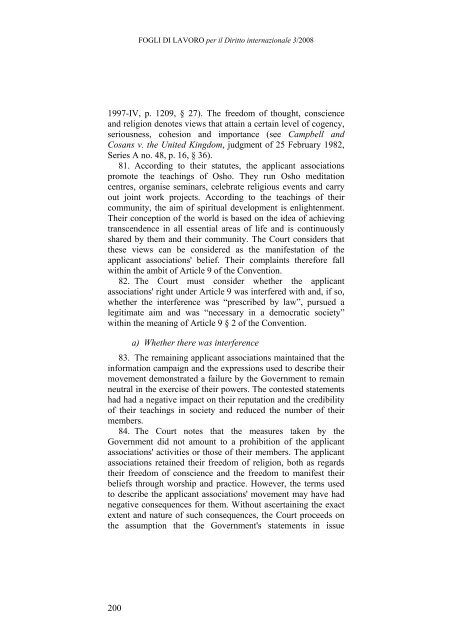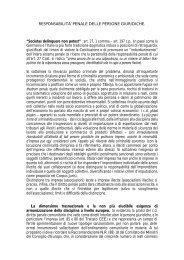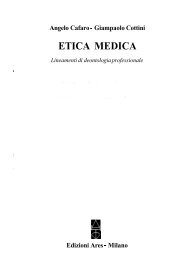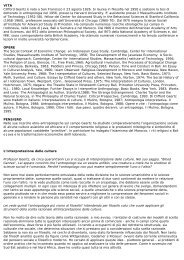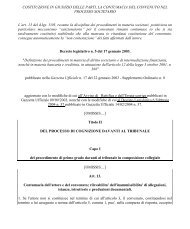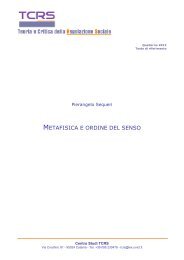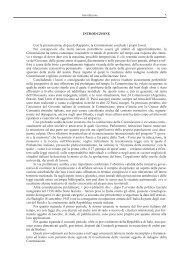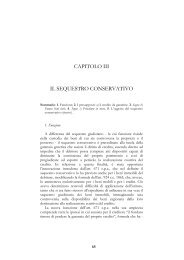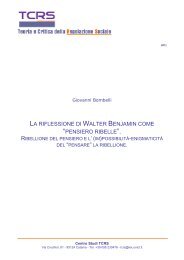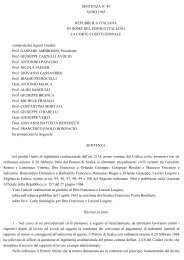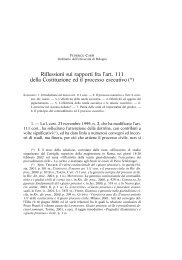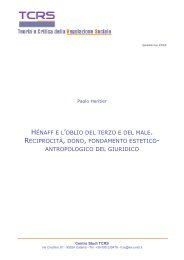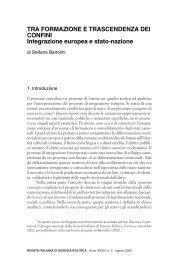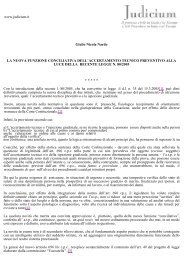FOGLI DI LAVORO per il Diritto internazionale 3 ... - Giurisprudenza
FOGLI DI LAVORO per il Diritto internazionale 3 ... - Giurisprudenza
FOGLI DI LAVORO per il Diritto internazionale 3 ... - Giurisprudenza
You also want an ePaper? Increase the reach of your titles
YUMPU automatically turns print PDFs into web optimized ePapers that Google loves.
200<br />
<strong>FOGLI</strong> <strong>DI</strong> <strong>LAVORO</strong> <strong>per</strong> <strong>il</strong> <strong>Diritto</strong> <strong>internazionale</strong> 3/2008<br />
1997-IV, p. 1209, § 27). The freedom of thought, conscience<br />
and religion denotes views that attain a certain level of cogency,<br />
seriousness, cohesion and importance (see Campbell and<br />
Cosans v. the United Kingdom, judgment of 25 February 1982,<br />
Series A no. 48, p. 16, § 36).<br />
81. According to their statutes, the applicant associations<br />
promote the teachings of Osho. They run Osho meditation<br />
centres, organise seminars, celebrate religious events and carry<br />
out joint work projects. According to the teachings of their<br />
community, the aim of spiritual development is enlightenment.<br />
Their conception of the world is based on the idea of achieving<br />
transcendence in all essential areas of life and is continuously<br />
shared by them and their community. The Court considers that<br />
these views can be considered as the manifestation of the<br />
applicant associations' belief. Their complaints therefore fall<br />
within the ambit of Article 9 of the Convention.<br />
82. The Court must consider whether the applicant<br />
associations' right under Article 9 was interfered with and, if so,<br />
whether the interference was “prescribed by law”, pursued a<br />
legitimate aim and was “necessary in a democratic society”<br />
within the meaning of Article 9 § 2 of the Convention.<br />
a) Whether there was interference<br />
83. The remaining applicant associations maintained that the<br />
information campaign and the expressions used to describe their<br />
movement demonstrated a fa<strong>il</strong>ure by the Government to remain<br />
neutral in the exercise of their powers. The contested statements<br />
had had a negative impact on their reputation and the credib<strong>il</strong>ity<br />
of their teachings in society and reduced the number of their<br />
members.<br />
84. The Court notes that the measures taken by the<br />
Government did not amount to a prohibition of the applicant<br />
associations' activities or those of their members. The applicant<br />
associations retained their freedom of religion, both as regards<br />
their freedom of conscience and the freedom to manifest their<br />
beliefs through worship and practice. However, the terms used<br />
to describe the applicant associations' movement may have had<br />
negative consequences for them. Without ascertaining the exact<br />
extent and nature of such consequences, the Court proceeds on<br />
the assumption that the Government's statements in issue


